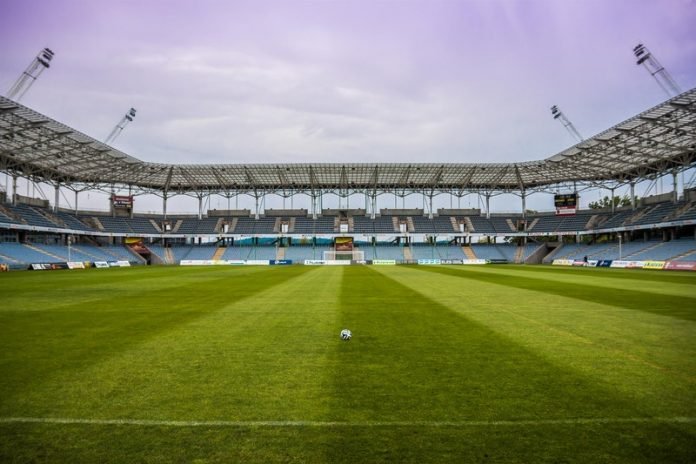
In a new study, researchers found professional football matches played before lockdown, even those in near-empty stadiums, were linked to higher COVID-19 cases and deaths in the local area.
The findings suggest that reopening stadiums with reduced capacities is unlikely to reduce rates of transmission on its own, without effective social distancing measures for fans before, during, and after matches.
The research was conducted by a team at the University of Reading.
In the study, the team analyzed the number of COVID-19 cases and deaths following matches played in England’s top eight divisions in the weeks leading up to the suspension of the 2019/20 season due to the pandemic.
The analysis showed that there were 340 league and cup games (including European cup games played in England) played in 188 of 313 geographical areas during this period, with a combined attendance of 1.65 million people.
Up until the season was suspended, the average attendance in the Premier League was 39,410, and almost 20,000 in the Championship. As low down as the sixth tier of English football, average match attendances were around 1,000 people.
The bulk of matches, particularly in the lower leagues, were played in stadiums with crowds of 20% capacity.
This study backs up the view that reducing crowd sizes on its own is unlikely to lower the risk of spreading the virus. Even when stadiums are only partially filled, fans tend to pack together in groups.
They also mix in bar areas, toilets, and queues, as well as in pubs, shops, and restaurants outside the grounds. They travel long distances around the country to attend matches, often in groups and on public transport.
The team says this behavior presents an effective route for airborne viruses to spread and is no less prevalent with smaller crowds.
While it is difficult to compare data before and after lockdown—as people’s behavior and rules have changed on transport and in shops, for example—the findings do suggest pilot events will be essential to planning for the safe return of crowds to sporting events.
One author of the study is Professor James Reade, a sports economist.
The study is published in COVID Economics.
Copyright © 2020 Knowridge Science Report. All rights reserved.



